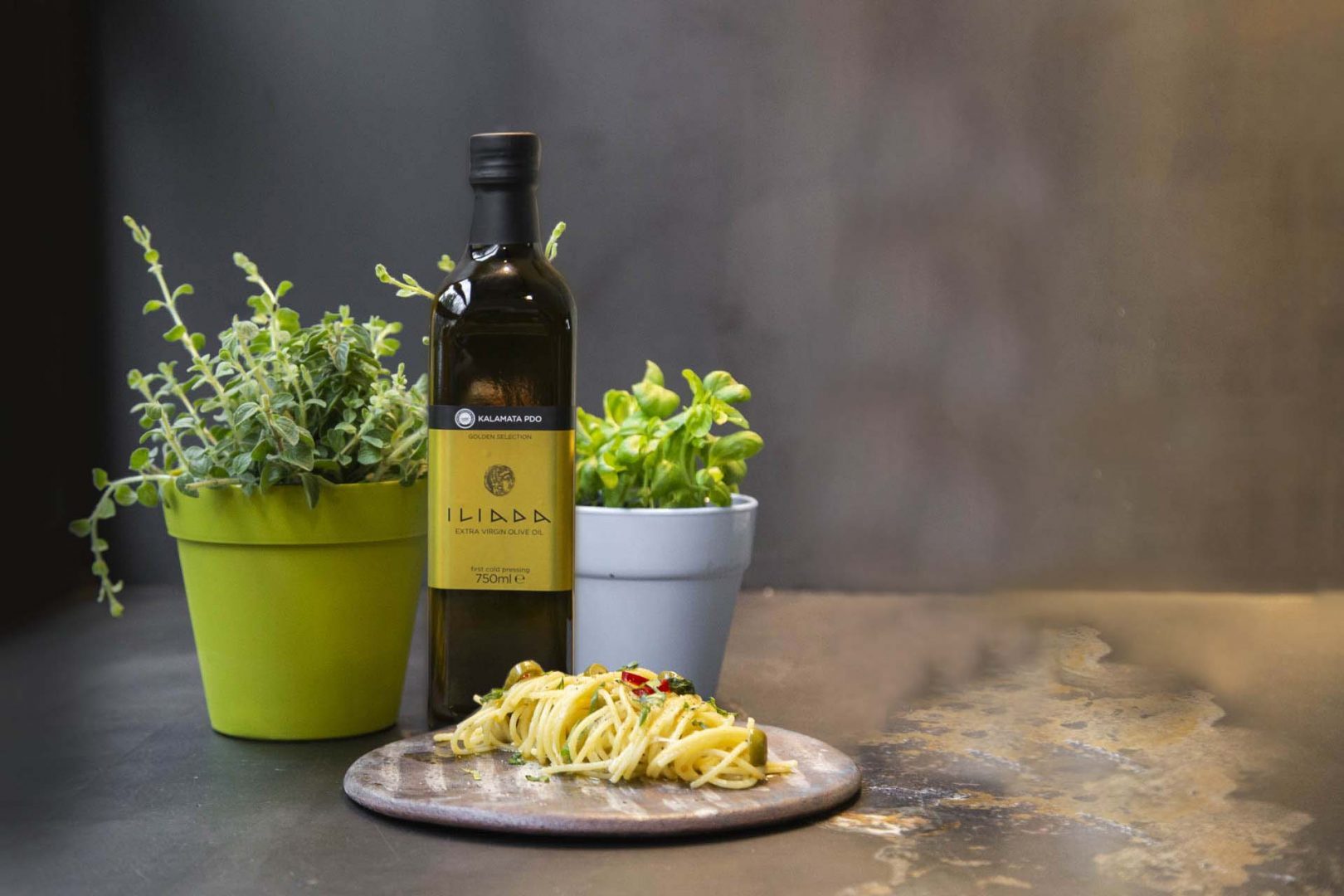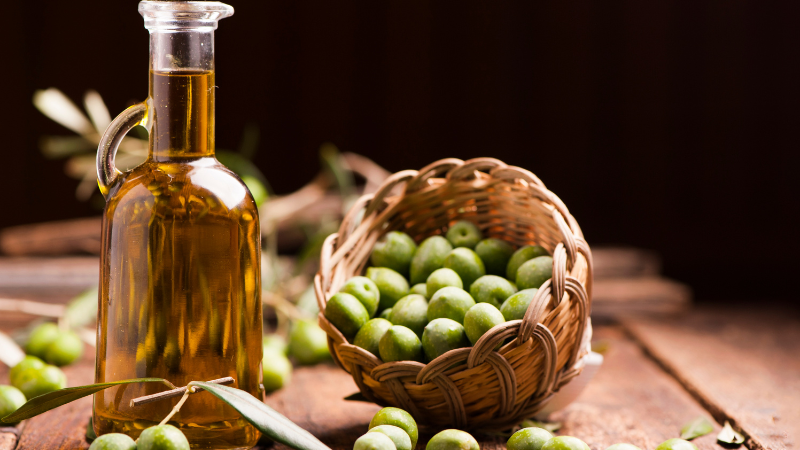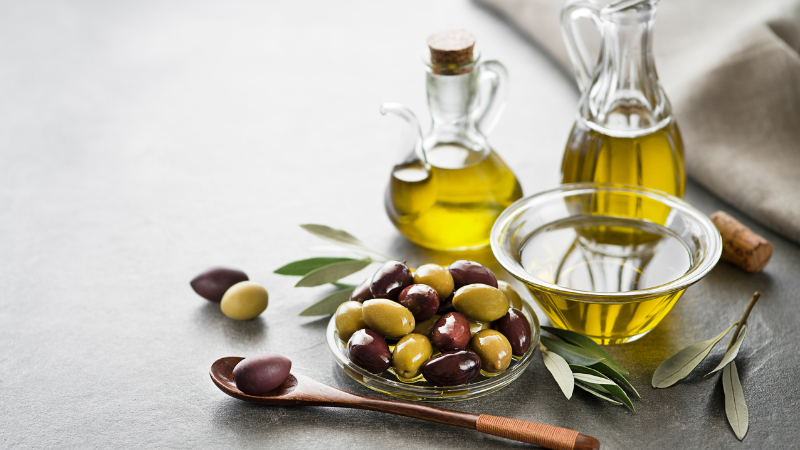How to Store Extra Virgin Olive Oil
Introduction
Thanks to the health benefits it offers and the oil’s shelf life, extra virgin olive oil is very popular. It’s likely that among the many cooking ingredients and oils you have in your kitchen, there is at least one bottle of olive oil.
Have you ever given much thought to proper storage for it? You are not alone if you have been keeping it on the kitchen counter where it is convenient for when you are cooking and preparing food. However, is that really the best place for storing olive oil? That’s what we will discuss in this post.
Extra virgin olive oil will only stay fresh unless you store it properly. While convenient, the kitchen counter is not the best place and could make it turn into rancid olive oil quicker than normal. Why? Because it’s more directly exposed to heat, light and oxygen there – these elements that can speed up the deterioration process.
Storing olive oil properly
Now that we have covered why you need to store olive oil somewhere and not just on the worktop in the kitchen where it can easily rot. When it comes to storing olive oil properly, there are two important aspects – where and how.
Where to store olive oil properly
Let’s start with the where. You should store olive oil, whether it’s extra virgin olive oil or not, in a dark, dry and cool cupboard out of direct contact with sunlight and heat. Pick an area of your kitchen away from your oven. Typically, the best temperature for storing olive oil is around 57-degrees Fahrenheit. However, if you can’t achieve that temperature, room temperature or around 70-degrees is fine.
How to store olive oil properly
Now to the how.
You should store olive oil in a dark coloured bottle made from glass. The darker hue will stop light from reducing the oil’s lifespan. You can also use a stainless-steel container. Whichever method you opt for, they will both protect your olive oil from light exposure. If you are in the habit of buying olive oil in large quantities, you may want to consider pouring smaller amounts into a number of smaller dark coloured bottles so you can use the oil when you need it without ruining a huge batch.
Types of containers to avoid when storing olive oils
Plastic containers are normally incredibly handy and by reusing them you are reducing the volume of waste you are generating. However, when it comes to storing oils like extra virgin olive oil and normal cooking olive oil, you should avoid plastic containers. Why? There are nasty chemicals in many plastics that can migrate into the oil.
You should also avoid storing oil in any containers made from reactive metals, like copper or iron, for similar reasons. When the metal reacts with the oil, it makes it unsafe for consumption.
Pro Tip – In addition to the above, you will also want to try and limit the amount of exposure the oil has to oxygen. Gradually, oxygen exposure can degrade oils like extra virgin olive oil, eventually transforming it into rancid olive oil that is unsafe for consumption. That is why you should always store it in a container with a mild or cap.
Once you have opened a bottle of any type of olive oil, you need to use it as soon as you possibly can. Even if you do a good job of always closing it as soon as you use it, each time it is opened, more oxygen is entering into the bottle and causing the oil to degrade.
Factors that can affect how quickly or slowly the olive oil degrades are the temperature of your kitchen, how you store it and where.
Should olive oil be refrigerated?
As the temperature is important, you may be considering storing different kinds of olive oil in the fridge. This is only necessary if your kitchen is regularly warmer than 70-degrees Fahrenheit.
Refrigeration is a great long-term storage option for most olive oils. We say most because you should avoid refrigerating high quality premium-grade olive oils. When refrigerating you need to also remember that refrigerated olive oil solidifies and turns cloudy, making it trickier to use. However, allowing it to return to room temperature will restore its colour and fluidity.
Alternatively, if you really want to store olive oil in the fridge, you could invest in a glass jar with a wide-mouth opening. Then, even if it solidifies, you can simply spoon out the amount of oil you need to use. This is also the only situation when a clear jar is safe to use as your refrigerator will be dark the majority of the time.
Is older olive oil better?
Although they are often considered similar, one major difference between olive oil and wine is that whereas wine gets better with age, olive oil does not. It’s actually quite the opposite, as olive oil ages, it beaks won and then more oleic acid develops inside it, increasing its acidity levels and weakening its flavour.
Even though extra virgin olive oils tend to last longer because they have lower levels of acidity, you should still aim to use them within a couple of months because as time passes the acidity level is increasing every day.
Summary
When it comes to storing olive oil, as is the case with storing oil in general, we have shown you that you need to pay attention to several different things.
You need to be careful with how you store it and where you store it. Over and above that you should use your senses and sense to work out if your olive oil has turned rancid or not. Familiarise yourself with its natural scent and flavour when you first buy an olive oil and then monitor it over time.
For a high quality olive oil, check out our award-winning Greek olive oil selection HERE



